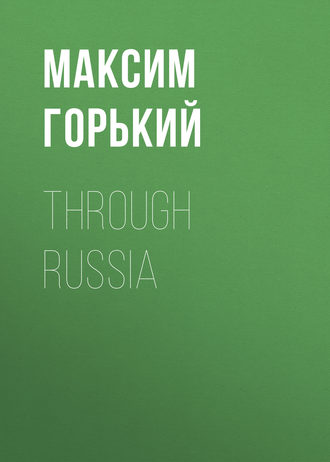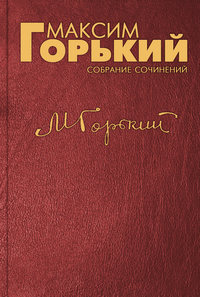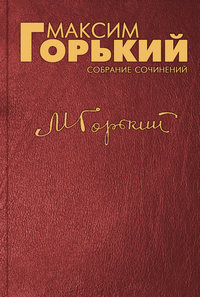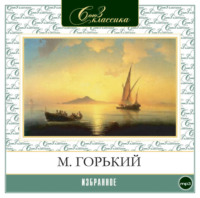 полная версия
полная версияThrough Russia
However, we contrived to raise him and carry him ashore with an arm of his resting on each of our necks. Meanwhile he growled with chattering teeth:
"Aha, you river devils! Drown me if you can! But I've not given you a chance, the Lord be thanked! Hi, look out! The ice won't bear the three of us. Mind how you step, and choose places where the ice is bare of snow. There it's firmer. No, a better plan still would be to leave me where I am."
Next, with a frowning scrutiny of my face, he inquired:
"That notebook of our misdeeds – hasn't it had a wetting and got done for?"
That very moment, as we stepped from the stranded floe (in grounding, it had crushed and shattered a small boat), such part of it as lay in the water gave a loud crack, and, swaying to and fro, and emitting a gurgling sound, floated clear of the rest.
"Ah!" was the Morduine's quizzical comment. "YOU knew well enough what needed to be done."
Wet, and chilled to the bone, though relieved in spirit, we stepped ashore to find a crowd of townspeople in conversation with Boev and the old soldier. And as we deposited our charge under the lea of a pile of logs he shouted cheerfully:
"Mates, Makarei's notebook is done for, soaked through!" And since the notebook in question was weighing upon my breast like a brick, I pulled it out unseen, and hurled it far into the river with a plop like that of a frog.
As for the Diatlovs, they lost no time in setting out in search of vodka in the tavern on the hill, and slapped one another on the back as they ran, and could be heard shouting, "Hurrah, hurrah!"
Upon this, a tall old man with the beard of an apostle and the eyes of a brigand muttered:
"Infidels, why disturb peaceful folk like this? You ought to be thrashed!"
Whereupon Boev, who was changing his clothes, retorted:
"What do you mean by 'disturb'?"
"Besides," put in the old soldier, "even though we are Christians like yourself, we might as well have been drowned for all that you did to help us."
"What could we have done?"
Meanwhile Ossip had remained lying on the ground with one leg stretched out at full length, and tremulous hands fumbling at his greatcoat as under his breath he muttered:
"Holy Mother, how wet I am! My clothes, though I have only worn them a year, are ruined for ever!"
Moreover, he seemed now to have shrunken again in stature – to have become crumpled up like a man run over. Indeed, as he lay he seemed actually to be melting, so continuously was his bulk decreasing in size.
But suddenly he raised himself to a sitting posture, groaned, and exclaimed in high-pitched, wrathful accents:
"May the devil take you all! Be off with you to your washhouses and churches! Yes, be off, for it seems that, as God couldn't keep His holy festival without you, I've had to stand within an ace of death and to spoil my clothes-yes, all that you fellows should be got out of your fix!"
Nevertheless, the men merely continued taking off their boots, and wringing out their clothes, and conversing with sundry gasps and grunts with the bystanders. So presently Ossip resumed:
"What are you thinking of, you fools? The washhouse is the best place for you, for if the police get you, they'll soon find you a lodging, and no mistake!"
One of the townspeople put in officiously:
"Aye, aye. The police have been sent for."
And this led Boev to exclaim to Ossip:
"Why pretend like that?"
"Pretend? I?"
"Yes – you."
"What do you mean?"
"I mean that it was you who egged us on to cross the river."
"You say that it was I?"
"I do."
"Indeed?"
"Aye," put in Budirin quietly, but incisively. And him the Morduine supported by saying in a sullen undertone:
"It was you, mate. By God it was. It would seem that you have forgotten."
"Yes, you started all this business," the old soldier corroborated, in dour, ponderous accents.
"Forgotten, indeed? HE?" was Boev's heated exclamation.
"How can you say such a thing? Well, let him not try to shift the responsibility on to others – that's all! WE'LL see, right enough, that he goes through with it!"
To this Ossip made no reply, but gazed frowningly at his dripping, half-clad men.
All at once, with a curious outburst of mingled smiles and tears (it would be hard to say which), he shrugged his shoulders, threw up his hands, and muttered:
"Yes, it IS true. If it please you, it was I that contrived the idea."
"Of COURSE it was!" the old soldier cried triumphantly.
Ossip turned his eyes again to where the river was seething like a bowl of porridge, and, letting his eyes fall with a frown, continued:
"In a moment of forgetfulness I did it. Yet how is it that we were not all drowned? Well, you wouldn't understand even if I were to tell you. No, by God, you wouldn't!.. Don't be angry with me, mates. Pardon me for the festival's sake, for I am feeling uneasy of mind. Yes, I it was that egged you on to cross the river, the old fool that I was!"
"Aha!" exclaimed Boev. "But, had I been drowned, what should you have said THEN?"
In fact, by this time Ossip seemed conscious to the full of the futility and the senselessness of what he had done: and in his state of sliminess, as he sat nodding his head, picking at the sand, looking at no one, and emitting a torrent of remorseful words, he reminded me strongly of a new-born calf.
And as I watched him I thought to myself:
"Where now is the leader of men who could draw his fellows in his train with so much care and skill and authority?"
And into my soul there trickled an uneasy sense of something lacking. Seating myself beside Ossip (for I desired still to retain a measure of my late impression of him), I said to him in an undertone:
"Soon you will be all right again."
With a sideways glance he muttered in reply, as he combed his beard:
"Well, you saw what happened just now. Always do things so happen."
While for the benefit of the men he added:
"That was a good jest of mine, eh?"
The summit of the hill which lay crouching, like a great beast, on the brink of the river was standing out clearly against the fast darkening sky; while a clump of trees thereon had grown black, and everywhere blue shadows of the spring eventide were coming into view, and looming between the housetops where the houses lay pressed like scabs against the hill's opaque surface, and peering from the moist, red jaws of the ravine which, gaping towards the river, seemed as though it were stretching forth for a draught of water.
Also, by now the rustling and crunching of the ice on the similarly darkening river was beginning to assume a deeper note, and at times a floe would thrust one of its extremities into the bank as a pig thrusts its snout into the earth, and there remain motionless before once more beginning to sway, tearing itself free, and floating away down the river as another such floe glided into its place.
And ever more and more swiftly was the water rising, and washing away soil from the bank, and spreading a thick sediment over the dark blue surface of the river. And as it did so, there resounded in the air a strange noise as of chewing and champing, a noise as though some huge wild animal were masticating, and licking itself with its great long tongue.
And still there continued to come from the town the melancholy, distance-softened, sweet-toned song of the bells.
Presently, the brothers Diatlov appeared descending from the hill with bottles in their hands, and sporting like a couple of joyous puppies, while to intercept them there could be seen advancing along the bank of the river a grey-coated police sergeant and two black-coated constables.
"Oh Lord!" groaned Ossip as he rubbed his knee.
As for the townsfolk, they had no love for the police, so hastened to withdraw to a little distance, where they silently awaited the officers' approach. Before long the sergeant, a little, withered sort of a fellow with diminutive features and a sandy, stubby moustache, called out in gruff, stern, hoarse, laboured accents:
"So here you are, you rascals!"
Ossip prised himself up from the ground with his elbow, and said hurriedly:
"It was I that contrived the idea of the thing, your Excellency; but, pray let me off in honour of the festival."
"What do you say, you – ?" the sergeant began, but his bluster was lost amid the swift flow of Ossip's further conciliatory words.
"We are folk of this town," Ossip continued, "who tonight found ourselves stranded on the further bank, with nothing to buy bread with, even though the day after tomorrow will be Christ's day, the day when Christians like ourselves wish to clean themselves up a little, and to go to church. So I said to my mates, 'Be off with you, my good fellows, and may God send that no mishap befall you!' And for this presumptuousness of mine I have been punished already, for, as you can see, have as good as broken my leg."
"Yes," ejaculated the sergeant grimly. "But if you had been drowned, what then?"
Ossip sighed wearily.
"What then, do you say, your Excellency? Why, then, nothing, with your permission."
This led the officer to start railing at the culprit, while the crowd listened as silently and attentively as though he had been saying something worthy to be heard and heeded, rather than foully and cynically miscalling their mothers.
Lastly, our names having been noted, the police withdrew, while each of us drank a dram of vodka (and thereby gained a measure of warmth and comfort), and then began to make for our several homes. Ossip followed the police with derisive eyes; whereafter, he leapt to his feet with a nimble, adroit movement, and crossed himself with punctilious piety.
"That's all about it, thank God!" he exclaimed.
"What?" sniggered Boev, now both disillusioned and astonished. "Do you really mean to say that that leg of yours is better already? Or do you mean that it never was injured at all?"
"Ah! So you wish that it HAD been injured, eh?"
"The rascal of a Petrushka!" the other exclaimed.
"Now," commanded Ossip, "do all of you be off, mates." And with that he pulled his wet cap on to his head.
I accompanied him – walking a little behind the rest. As he limped along, he said in an undertone-said kindly – and as though he were communicating a secret known only to himself:
"Whatsoever one may do, and whithersoever one may turn, one will find that life cannot be lived without a measure of fraud and deceit. For that is what life IS, Makarei, the devil fly away with it!.. I suppose you're making for the hill? Well, I'll keep you company."
Darkness had fallen, but at a certain spot some red and yellow lamps, lamps the beams of which seemed to be saying, "Come up hither!" were shining through the obscurity.
Meanwhile, as we proceeded in the direction of the bells that were ringing on the hill, rivulets of water flowed with a murmur under our feet, and Ossip's kindly voice kept mingling with their sound.
"See," he continued, "how easily I befooled that sergeant! That is how things have to be done, Makarei – one has to keep folk from knowing one's business, yet to make them think that they are the chief persons concerned, and the persons whose wit has put the cap on the whole."
Yet as I listened to his speech, while supporting his steps, I could make little of it.
Nor did I care to make very much of it, for I was of a simple and easygoing nature. And though at the moment I could not have told whether I really liked Ossip, I would still have followed his lead in any direction – yes, even across the river again, though the ice had been giving way beneath me.
And as we proceeded, and the bells echoed and re-echoed, I thought to myself with a spasm of joy:
"Ah, many times may I thus walk to greet the spring!"
While Ossip said with a sigh:
"The human soul is a winged thing. Even in sleep it flies."
A winged thing? Yes, and a thing of wonder.
GUBIN
The place where I first saw him was a tavern wherein, ensconced in the chimney-corner, and facing a table, he was exclaiming stutteringly, "Oh, I know the truth about you all! Yes, I know the truth about you!" while standing in a semicircle in front of him, and unconsciously rendering him more and more excited with their sarcastic interpolations, were some tradesmen of the superior sort – five in number. One of them remarked indifferently:
"How should you NOT know the truth about us, seeing that you do nothing but slander us?"
Shabby, in fact in rags, Gubin at that moment reminded me of a homeless dog which, having strayed into a strange street, has found itself held up by a band of dogs of superior strength, and, seized with nervousness, is sitting back on its haunches and sweeping the dust with its tail; and, with growls, and occasional barings of its fangs, and sundry barkings, attempting now to intimidate its adversaries, and now to conciliate them. Meanwhile, having perceived the stranger's helplessness and insignificance, the native pack is beginning to moderate its attitude, in the conviction that, though continued maintenance of dignity is imperative, it is not worthwhile to pick a quarrel so long as an occasional yelp be vented in the stranger's face.
"To whom are you of any use?" one of the tradesmen at length inquired.
"Not a man of us but may be of use."
"To whom, then?"…
I had long since grown familiar with tavern disputes concerning verities, and not infrequently seen those disputes develop into open brawls; but never had I permitted myself to be drawn into their toils, or to be set wandering amid their tangles like a blind man negotiating a number of hillocks. Moreover, just before this encounter with Gubin, I had arrived at a dim surmise that when such differences were carried to the point of madness and bloodshed. Really, they constituted an expression of the unmeaning, hopeless, melancholy life that is lived in the wilder and more remote districts of Russia – of the life that is lived on swampy banks of dingy rivers, and in our smaller and more God-forgotten towns. For it would seem that in such places men have nothing to look for, nor any knowledge of how to look for anything; wherefore, they brawl and shout in vain attempts to dissipate despondency…
I myself was sitting near Gubin, but on the other side of the table. Yet, this was not because his outbursts and the tradesmen's retorts thereto were a pleasure to listen to, since to me both the one and the other seemed about as futile as beating the air.
"To whom are YOU of use?"
"To himself every man can be useful."
"But what good can one do oneself?"…
The windows of the tavern were open, while in the pendent, undulating cloud of blue smoke that the flames of the lamps emitted, those lamps looked like so many yellow pitchers floating amid the waters of a stagnant pond. Out of doors there was brooding the quiet of an August night, and not a rustle, not a whisper was there to be heard. Hence, as numbed with melancholy, I gazed at the inky heavens and limpid stars I thought to myself:
"Surely, never were the sky and the stars meant to look down upon a life like this, a life like this?"
Suddenly someone said with the subdued assurance of a person reading aloud from a written document:
"Unless the peasants of Kubarovo keep a watch upon their timber lands, the sun will fire them tomorrow, and then the Birkins' forest also will catch alight."
For a moment the dispute died down. Then, as it were cleaving the silence, a voice said stutteringly:
"Who cares about the significance of the word 'truth'?"
And the words – heavy, jumbled, and clumsy – filled me with despondent reflections. Then again the voices rose – this time in louder and more venomous accents, and with their din recalled to me, by some accident, the foolish lines:
The gods did give men waterTo wash in, and to drink;Yet man has made it but a poolIn which his woes to sink.Presently I moved outside and, seating myself on the steps of the veranda, fell to contemplating the dull, blurred windows of the Archpriest's house on the other side of the square, and to watching how black shadows kept flitting to and fro behind their panes as the faint, lugubrious notes of a guitar made themselves heard. And a high-pitched, irritable voice kept repeating at intervals: "Allow me. Pray, permit me to speak," and being answered by a voice which intermittently shot into the silence, as into a bottomless sack, the words: "No, do you wait a moment, do you wait a moment."
Surrounded by the darkness, the houses looked stunted like gravestones, with a line of black trees above their roofs that loomed shadowy and cloud-like. Only in the furthest corner of the expanse was the light of a solitary street lamp bearing a resemblance to the disk of a stationary, resplendent dandelion.
Over everything was melancholy. Far from inviting was the general outlook. So much was this the case that, had, at that moment, anyone stolen upon me from behind the bushes and dealt me a sudden blow on the head, I should merely have sunk to earth without attempting to see who my assailant had been.
Often, in those days, was I in this mood, for it clave to me as faithfully as a dog – never did it wholly leave me.
"It was for men like THOSE that this fair earth of ours was bestowed upon us!" I thought to myself.
Suddenly, with a clatter, someone ran out of the door of the tavern, slid down the steps, fell headlong at their foot, quickly regained his equilibrium, and disappeared in the darkness after exclaiming in a threatening voice:
"Oh, I'LL pay you out! I'LL skin you, you damned…!"
Whereafter two figures that also appeared in the doorway said as they stood talking to one another:
"You heard him threaten to fire the place, did you not?"
"Yes, I did. But why should he want to fire it?"
"Because he is a dangerous rascal."
Presently, slinging my wallet upon my back, I pursued my onward way along a street that was fenced on either side with a tall palisade. As I proceeded, long grasses kept catching at my feet and rustling drily. And so warm was the night as to render the payment of a lodging fee superfluous; and the more so since in the neighbourhood of the cemetery, where an advanced guard of young pines had pushed forward to the cemetery wall and littered the sandy ground, with a carpet of red, dry cones, there were sleeping-places prepared in advance.
Suddenly from the darkness there emerged, to recoil again, a man's tall figure.
"Who is that? Who is it?" asked the hoarse, nervous voice of Gubin in dissipation of the deathlike stillness.
Which said, he and I fell into step with one another. As we proceeded he inquired whence I had come, and why I was still abroad. Whereafter he extended to me, as to an old acquaintance, the invitation:
"Will you come and sleep at my place? My house is near here, and as for work, I will find you a job tomorrow. In fact, as it happens, I am needing a man to help me clean out a well at the Birkins' place. Will the job suit you? Very well, then. Always I like to settle things overnight, as it is at night that I can best see through people."
The "house" turned out to be nothing more than an old one-eyed, hunchbacked washhouse or shanty which, bulging of wall, stood wedged against the clayey slope of a ravine as though it would fain bury itself amid the boughs of the neighbouring arbutus trees and elders.
Without striking a light, Gubin flung himself upon some mouldy hay that littered a threshold as narrow as the threshold of a dog-kennel, and said to me with an air of authority as he did so:
"I will sleep with my head towards the door, for the atmosphere here is a trifle confined."
And, true enough, the place reeked of elderberries, soap, burnt stuff, and decayed leaves. I could not conceive why I had come to such a spot.
The twisted branches of the neighbouring trees hung motionless athwart the sky, and concealed from view the golden dust of the Milky Way, while across the Oka an owl kept screeching, and the strange, arresting remarks of my companion pelted me like showers of peas.
"Do not be surprised that I should live in a remote ravine," he said. "I, whose hand is against every man, can at least feel lord of what I survey here."
Too dark was it for me to see my host's face, but my memory recalled his bald cranium, and the yellow light of the lamps falling upon a nose as long as a woodpecker's beak, a pair of grey and stubbly cheeks, a pair of thin lips covered by a bristling moustache, a mouth sharp-cut as with a knife, and full of black, evil-looking stumps, a pair of pointed, sensitive, mouse-like ears, and a clean-shaven chin. The last feature in no way consorted with his visage, or with his whole appearance; but at least it rendered him worthy of remark, and enabled one to realise that one had to deal with neither a peasant nor a soldier nor a tradesman, but with a man peculiar to himself. Also, his frame was lanky, with long arms and legs, and pointed knees and elbows. In fact, so like a piece of string was his body that to twist it round and round, or even to tie it into a knot, would, seemingly, have been easy enough.
For awhile I found his speech difficult to follow; wherefore, silently I gazed at the sky, where the stars appeared to be playing at follow-my-leader.
"Are you asleep?" at length he inquired.
"No, I am not. Why do you shave your beard?"
"Why do you ask?"
"Because, if you will pardon me, I think your face would look better bearded."
With a short laugh he exclaimed:
"Bearded? Ah, sloven! Bearded, indeed!"
To which he added more gravely:
"Both Peter the Great and Nicholas I were wiser than you, for they ordained that whosoever should be bearded should have his nose slit, and be fined a hundred roubles. Did you ever hear of that?"
"No."
"And from the same source, from the beard, arose also the Great Schism."
His manner of speaking was too rapid to be articulate, and, in leaving his mouth, his words caused his lips to bare stumps and gums amid which they lost their way, became disintegrated, and issued, as it were, in an incomplete state.
"Everyone," he continued, "knows that life is lived more easily with a beard than without one, since with a beard lies are more easily told – they can be told, and then hidden in the masses of hair. Hence we ought to go through life with our faces naked, since such faces render untruthfulness more difficult, and prevent their owners from prevaricating without the fact becoming plain to all."
"But what about women?"
"What about women? Well, women can always lie to their husbands successfully, but not to all the town, to all the world, to folk in general. Moreover, since a woman's real business in life is the same as that of the hen, to rear young, what can it matter if she DOES cackle a few falsehoods, provided that she be neither a priest nor a mayor nor a tchinovnik, and does not possess any authority, and cannot establish laws? For the really important point is that the law itself should not lie, but ever uphold truth pure and simple. Long has the prevalent illegality disgusted me."
The door of the shanty was standing open, and amid the outer darkness, as in a church, the trees looked like pillars, and the white stems of the birches like silver candelabra tipped with a thousand lights, or dimly-seen choristers with faces showing pale above sacramental vestments of black. All my soul was full of a sort of painful restlessness. It was a feeling as though I should live to rise and go forth into the darkness, and offer battle to the terrors of the night; yet ever, as my companion's torrential speech caught and held my attention, it detained me where I was.
"My father was a man of no little originality and character," he went on. "Wherefore, none of the townsfolk liked him. By the age of twenty he had risen to be an alderman, yet never to the end could get the better of folk's stubbornness and stupidity, even though he made it his custom to treat all and sundry to food and drink, and to reason with them. No, not even at the last did he attain his due. People feared him because he revolutionised everything, revolutionised it down to the very roots; the truth being that he had grasped the one essential fact that law and order must be driven, like nails, into the people's very vitals."









